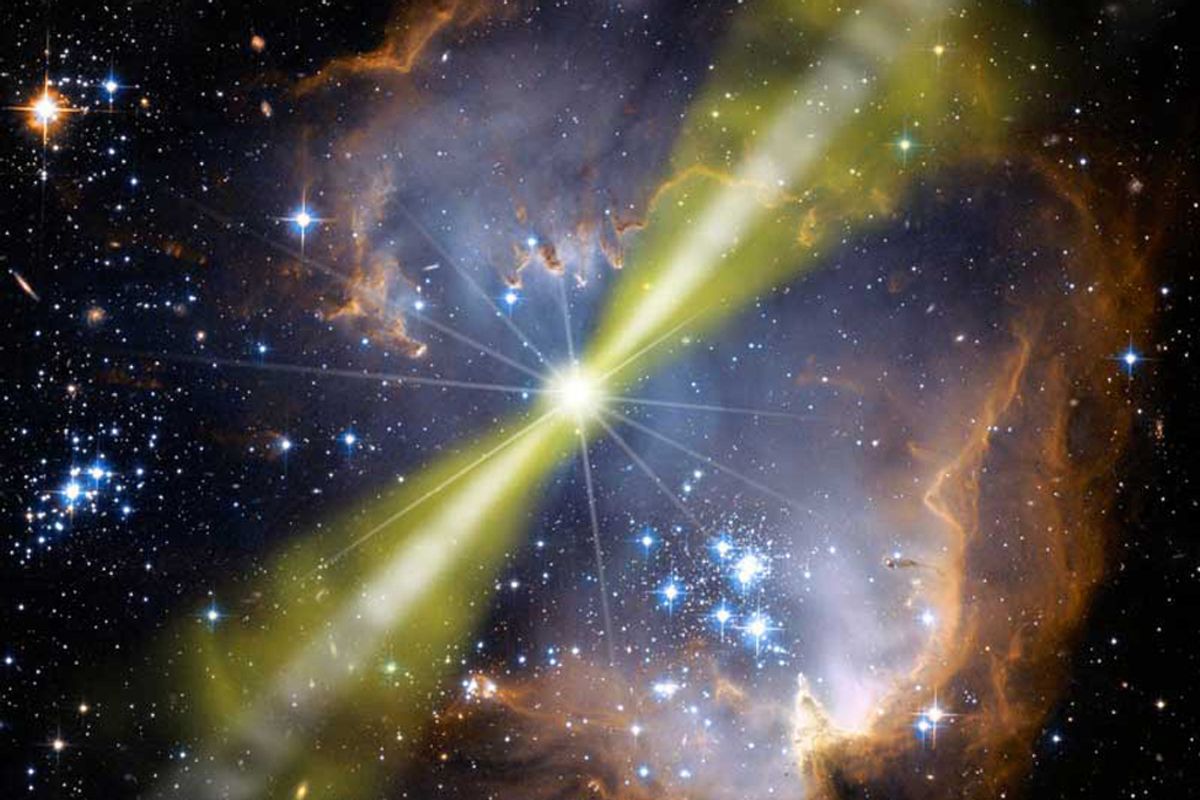A gamma ray burst that occurred 12.1 billion years ago has been detected, marking one of the earliest known examples of these ultra-powerful explosions. It’s also one of the brightest ever seen.
Gamma-Ray bursts are rare but exceptionally powerful explosions, thought to occur as neutron stars form or merge.

“As NASA points out, gamma-ray bursts are the most powerful explosions in the universe since the Big Bang,” said Farley Ferrante, a Graduate student at Southern Methodist University’s Department of Physics and one of the three astronomers who monitored the afterglow. “These bursts release more energy in 10 seconds than our Earth’s sun during its entire expected lifespan of 10 billion years.”
As the name suggests, Gamma Ray Bursts are first seen in the high energy part of the electromagnetic spectrum, but the afterglow can be seen at other wavelengths. After being alerted by the Swift Satellite to the presence of a burst ground based telescopes race to capture the “optical tail”. In this case it took just 55 seconds from Swift’s reporting of the event to first detection on the ground.

GRB 140419A was observed at 11pm on April 19 by SMU’s robotic telescope.
This is not the oldest gamma ray burst identified. GRB 090423 is thought to have occurred 13 billion years ago, when the universe was 4% of its current age. However, it was astonishingly bright for such a distant object. SMU’s Professor Robert Kehoe pointed out that its 12th magnitude brightness is only ten times dimmer than what can bee seen with backyard binocularsCompared to the dimmest star we can see, “The difference in brightness is about the same as between the brightest star you can see in the sky, and the dimmest you can see with the naked eye on a clear, dark night,” Kehoe said. “Considering this thing was at the edge of the visible universe, that’s an extreme explosion. That was something big. Really big.”

GRB 140419A was also not the brightest gamma ray burst every observed. In 2008 GRB 080319B was so bright people with very good eyesight could have seen it under dark skies with the naked eye. However, the combination of such brightness and such distance makes the more recent event among the most powerful known.
The exact cause of Gamma Ray Bursts is still debated, however, in most cases the association with supernovae is clear. “Gamma-ray bursts may be particularly massive cousins to supernovae, or may correspond to cases in which the explosion ejecta are more beamed in our direction. By studying them, we learn about supernovae,” said Kehoe.

The same SMU-run telescope tracked the glow of an almost equally distant, but not as bright, four days later.